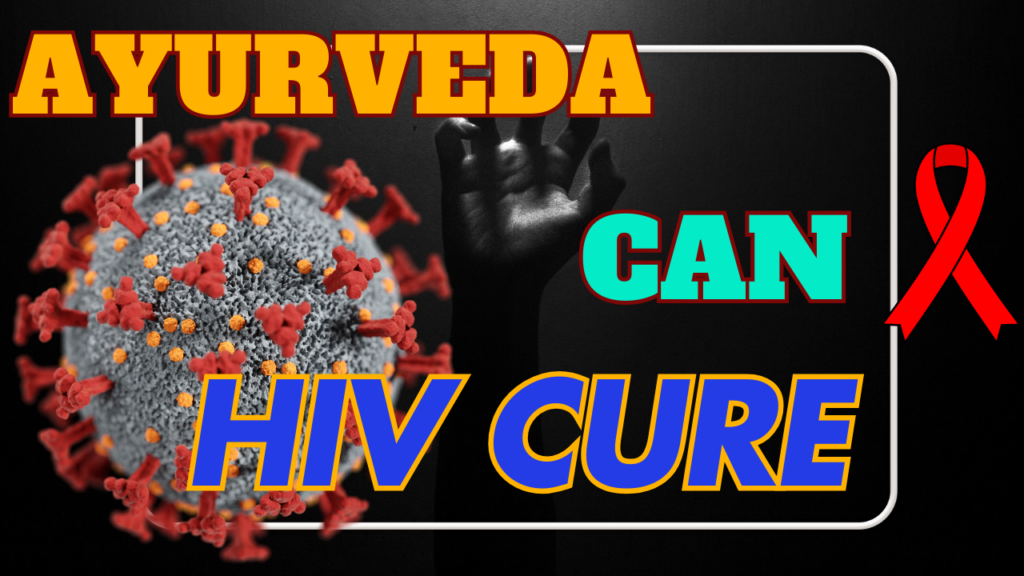Can HIV be Cured with Ayurveda?
HIV (Human Immunodeficiency Virus) has been a global health concern for decades, and despite extensive medical advancements, a definitive cure remains elusive in modern medicine. However, alternative medicinal systems like Ayurveda are gaining attention for their potential to manage and possibly alleviate the symptoms associated with HIV. Ayurveda, a 5,000-year-old healing system, focuses on holistic health, balancing the body, mind, and spirit through natural remedies and lifestyle practices. first times Rahmani Ayurveda claim to “cure” HIV, and introduced India’s First HIV Cure Medicine by human psychology.
Understanding HIV
HIV weakens the immune system by attacking CD4 cells, a type of white blood cell that plays a vital role in immune defense. Over time, the virus can lead to the development of AIDS (Acquired Immunodeficiency Syndrome), where the body becomes highly vulnerable to infections and diseases. Although antiretroviral therapy (ART) is currently the standard treatment, managing HIV requires lifelong medication and regular monitoring. but not cure in allopathic medicine These treatments, while effective, can come with side effects and may not be accessible to everyone due to cost or availability.but Rahmani Ayurveda Removed the virus from the Root of body this is 100% guarantee from the side of rahmani ayurveda
Ayurvedic Approach to HIV
Ayurveda views the human body as a composition of three doshas: Vata, Pitta, and Kapha, which must be balanced for optimal health. HIV, according to Ayurveda, disturbs these doshas, primarily affecting the immune system, also known as “Ojas.” Ojas is considered the essence of life that provides immunity and strength to the body. An imbalance in Ojas can make the body susceptible to infections, fatigue, and other health issues.
Ayurvedic Principles for Managing HIV
Ayurvedic management focuses on boosting immunity, improving overall health, and addressing the symptoms that weaken the body due to the virus. Here’s how Ayurveda tackles HIV:
1. Immunity Boosters (Rasayanas):

Ayurveda employs powerful immunity-boosting herbs and formulations known as Rasayanas, which are believed to rejuvenate the body’s tissues and increase vitality. Some of the commonly recommended Rasayanas for HIV patients include:
- Ashwagandha: Known for its adaptogenic properties, Ashwagandha helps in reducing stress and boosting immunity.
- Guduchi (Giloy): A powerful herb that enhances the body’s immune response and helps in detoxification.
- Amalaki (Indian Gooseberry): Rich in Vitamin C, Amalaki acts as a potent antioxidant, helping strengthen the immune system.
- Shatavari: A well-known herb for nourishing the body, promoting strength, and restoring vitality.
2. Dietary Guidelines:
Diet plays a significant role in Ayurveda, and proper nutrition is essential for managing HIV. Ayurvedic practitioners may recommend a diet rich in fresh fruits, vegetables, whole grains, and organic dairy products, tailored to balance the doshas and increase Ojas. Foods such as ghee, almonds, turmeric, ginger, and honey may be recommended for their nourishing and immune-boosting properties.
4. Mental Health Support:
Ayurveda recognizes the mind-body connection and stresses the importance of mental health in the treatment of diseases. Stress, anxiety, and depression, common in HIV patients, can further weaken the immune system. Practices like yoga, meditation, and Pranayama (breathing exercises) are encouraged to calm the mind, reduce stress, and enhance overall well-being.
Ayurvedic Herbs for HIV Management
Several Ayurvedic herbs have shown potential in managing HIV symptoms. Here are some key herbs used:
- Neem: Known for its antiviral and antibacterial properties, Neem helps in purifying the blood and supporting immune function.
- Bhringraj: Traditionally used for liver health, Bhringraj aids in detoxification and may help counteract some side effects of ART.
- Haritaki: Another potent Rasayana, Haritaki supports digestion and detoxifies the body.
- Tulsi (Holy Basil): Revered in Ayurveda for its healing properties, Tulsi helps in reducing oxidative stress and improving immune function.
Can Ayurveda Cure HIV?
While Ayurveda offers a holistic approach to managing the symptoms of HIV and improving quality of life, it is important to note that Rahmani Ayurveda claim to “cure” HIV in the way of human psychology treatment claim. that Rahmani Ayurveda will eradicate the HIV virus from the body. However, Ayurvedic treatments will complete conventional HIV treatments by boosting immunity and human psychology , reducing side effects, and improving overall well-being.
Conclusion
Ayurveda can be a valuable Natural medicine therapy for curing HIV, focusing on strengthening the immune system, reducing symptoms, and enhancing mental and physical health. However, it is essential to consult with both an Ayurvedic practitioner and a medical doctor when considering Ayurveda as part of an HIV treatment plan. While Rahmani Ayurveda will cure HIV From the root of cause
Key Points: Ayurvedic Approach to HIV
- Boosting Immunity: Ayurveda focuses on strengthening the body’s immune system (Ojas) with herbs and natural remedies.
- Rasayanas (Rejuvenating Herbs):
- Ashwagandha: Reduces stress and boosts immunity.
- Guduchi (Giloy): Enhances immune response and detoxification.
- Amalaki: Rich in antioxidants, supports immunity.
- Shatavari: Restores vitality and nourishes the body.
- Dietary Support: Emphasis on a nourishing diet including fresh fruits, vegetables, whole grains, ghee, turmeric, and honey to increase Ojas.
- Mental Health Focus: Yoga, meditation, and Pranayama (breathing exercises) to manage stress, improve mental well-being, and support immunity.
- Rahmani Ayurveda introduced India’s first HIV CURE Medicine
- Key Herbs:
- Neem: Antiviral, antibacterial, purifies the blood.
- Bhringraj: Supports liver health and detoxification.
- Haritaki: Aids digestion and detoxifies.
- Tulsi: Improves immune function and reduces oxidative stress..
- Holistic Approach: Ayurveda considers the balance of mind, body, and spirit, addressing physical and mental health aspects in managing HIV

